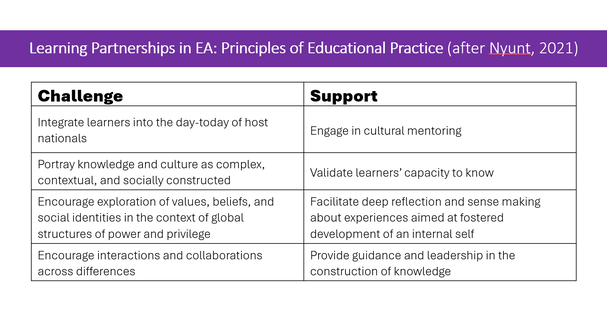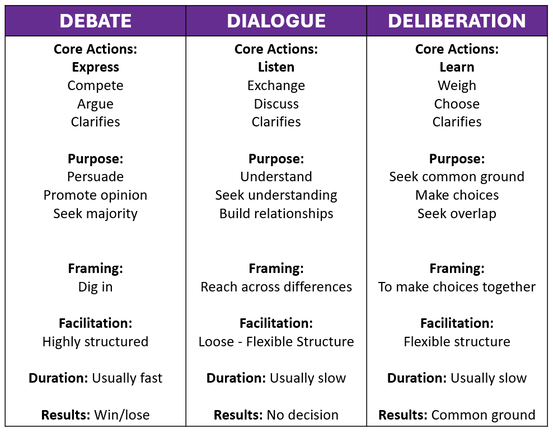-
Standards & Resources
- Standards of Good Practice
- Code of Ethics
-
Guidelines
>
- Advancing the UN Sustainable Development Goals through Education Abroad
- Community Engaged Learning Abroad
- Conducting Education Abroad during COVID-19
- Conflicts of Interest
- Education Abroad Advising
- Good Business Partnerships
- Internships Abroad
- Language Learning Abroad
- Leading Short-Term Education Abroad Programs
- Online Global Learning Experiences
- Program Site Visits
- Responding to Sexual and Gender-Based Misconduct
- Responsible Education Abroad: Best Practices for Health, Safety, and Security
- Supporting Transgender and Nonbinary Students in Education Abroad
- Undergraduate Health-Related Experiences Abroad
- Undergraduate Research, Field Studies, and Independent Study Projects Abroad
- Toolkits >
- Areas of Practice >
- Career Resources >
- Glossary
- Recursos en español
- Online Shop
-
Learning & Development
-
Events
-
Research & Insights
- Advocacy >
- Forum News
- Forum Storytellers >
- News
-
Research
>
- Mentored Undergraduate Research in Global Contexts
- Case Study in Standards-Based Program Design and Implementation
- Education Abroad and Virtual Exchange
- State of the Field
- Critical Incidents & Student Risk
- Funding Models of EA Offices
- AIFS/AIFS Foundation Special Collection
- Careers of Language Study Abroad Alumni
-
Scholarly Publications
>
- White Papers
- Consulting & Expertise
-
Get Involved
-
Standards & Resources
- Standards of Good Practice
- Code of Ethics
-
Guidelines
>
- Advancing the UN Sustainable Development Goals through Education Abroad
- Community Engaged Learning Abroad
- Conducting Education Abroad during COVID-19
- Conflicts of Interest
- Education Abroad Advising
- Good Business Partnerships
- Internships Abroad
- Language Learning Abroad
- Leading Short-Term Education Abroad Programs
- Online Global Learning Experiences
- Program Site Visits
- Responding to Sexual and Gender-Based Misconduct
- Responsible Education Abroad: Best Practices for Health, Safety, and Security
- Supporting Transgender and Nonbinary Students in Education Abroad
- Undergraduate Health-Related Experiences Abroad
- Undergraduate Research, Field Studies, and Independent Study Projects Abroad
- Toolkits >
- Areas of Practice >
- Career Resources >
- Glossary
- Recursos en español
- Online Shop
-
Learning & Development
-
Events
-
Research & Insights
- Advocacy >
- Forum News
- Forum Storytellers >
- News
-
Research
>
- Mentored Undergraduate Research in Global Contexts
- Case Study in Standards-Based Program Design and Implementation
- Education Abroad and Virtual Exchange
- State of the Field
- Critical Incidents & Student Risk
- Funding Models of EA Offices
- AIFS/AIFS Foundation Special Collection
- Careers of Language Study Abroad Alumni
-
Scholarly Publications
>
- White Papers
- Consulting & Expertise
-
Get Involved








